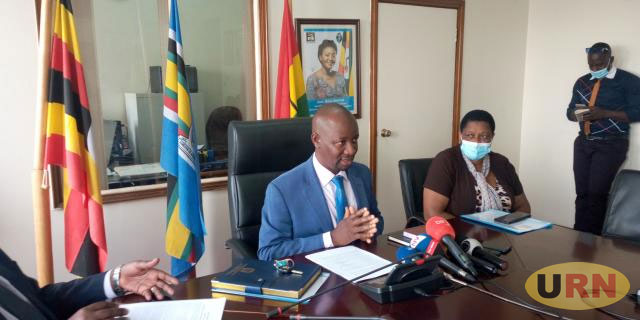
Kampala, Uganda | THE INDEPENDENT | The Shadow Minister of Finance and Kira Municipality Member of Parliament, Ibrahim Ssemujju Nganda, is calling for the reopening of the debate on the deployment of the Uganda People’s Defence Forces (UPDF) in South Sudan. Ssemujju’s call comes amid growing concerns over Uganda’s continued military involvement in the region.
Speaking to Uganda Radio Network, Ssemujju said on top of the financial implications of the deployment, there is even heightened urgency to discuss the matter after accusations by opposition groups that UPDF had used chemical weapons in some parts of Northern South Sudan held by the Sudan People’s Liberation Army/Movement in Opposition-SPLM/A-IO. The SPLM/A-IO is led by the First Vice President Dr Riek Machar, who is currently under house arrest in Juba.
For over a month, there has been fear of resumption of a full-scale civil war in South Sudan after the fallout between President Salva Kiir and Machar following attacks on the national army, the SSPDF, in greater Upper Nile and Unity States. Kiir followed the attacks by arresting and detaining several SPLA/M-IO officials, including Machar and his wife Angelina Teny, who have been under house arrest in their home in Juba.
As a means of securing his regime, Kiir invited the UPDF for reinforcement, which has since been deployed in the capital, Juba, and other parts of South Sudan. In Uganda, about two weeks ago, the government introduced a motion in parliament where it sought permission to support the government of South Sudan. The speaker, Annet Anita Among didn’t allow debate on the matter when it was introduced by the Defense Minister.
But in the interview, Ssemujju says the law only envisages two scenarios under which parliament can authorize deployment of the UPDF outside the country: peacekeeping and peace enforcement.
Ssemujju said because the UPDF was deployed in South Sudan under unclear circumstances, the country is going to foot the bills of its deployment. He argues that perhaps this is the reason why the UPDF’s classified and operations budget has been growing every financial year.
“From Museveni’s address to MPs, we have at least 2000 soldiers in South Sudan that we are feeding, that we are treating, we have our vehicles there that require fuel. As you know, the government of South Sudan has almost collapsed, and it can’t fund the presence of the UPDF in its territory. That’s why they brought a motion of support that doesn’t exist in the law to help Salva Kiir,” Ssemujju said, adding that without having a proper agreement on the state of Uganda’s army deployment in South Sudan, UPDF is acting like a mercenary force.
Ssemujju also expressed fear that because there is no formal arrangement under which UPDF is in South Sudan, Uganda risks being dragged to the International Court of Justice the same way the Democratic Republic of Congo did.
The conflict started in 2013 after Kiir accused Machar, whom he had earlier sacked as Vice President, of fomenting a coup d’état. There was widespread killing in cold blood of the Nuer in Juba city and some other South Sudan states on the first day of the alleged coup.
This led to a civil war that was only brought to an end in 2015 after the signing of a peace agreement that returned Machar as Vice President and the sharing of power. However, this peace agreement also broke down in 2016 when there was another massive attack by the forces loyal to Kiir on Machar’s forces in Juba and other states such as Upper Nile State, Jonglei, among others.
This attack gave way to the resumption of the civil war that, according to estimates, has killed over 400,000 people and displaced a million others in Uganda, Sudan, Ethiopia, Kenya, and other countries. A revitalized peace agreement that created the Transitional government of national unity in 2018 had, for at least seven years, led to relative peace in Africa’s youngest nation.
Among others, the peace agreement provided for the holding of general elections in two years from 2018. However, these have been postponed several times, the most recent being last year. South Sudan seceded from Sudan in 2011 after a civil war that lasted over 50 years. Since becoming independent, it has never held general elections, and Kiir, who replaced the charismatic leader of the SPLM, Dr John Garang de Mabior, has been president since then.
****
URN
 The Independent Uganda: You get the Truth we Pay the Price
The Independent Uganda: You get the Truth we Pay the Price



